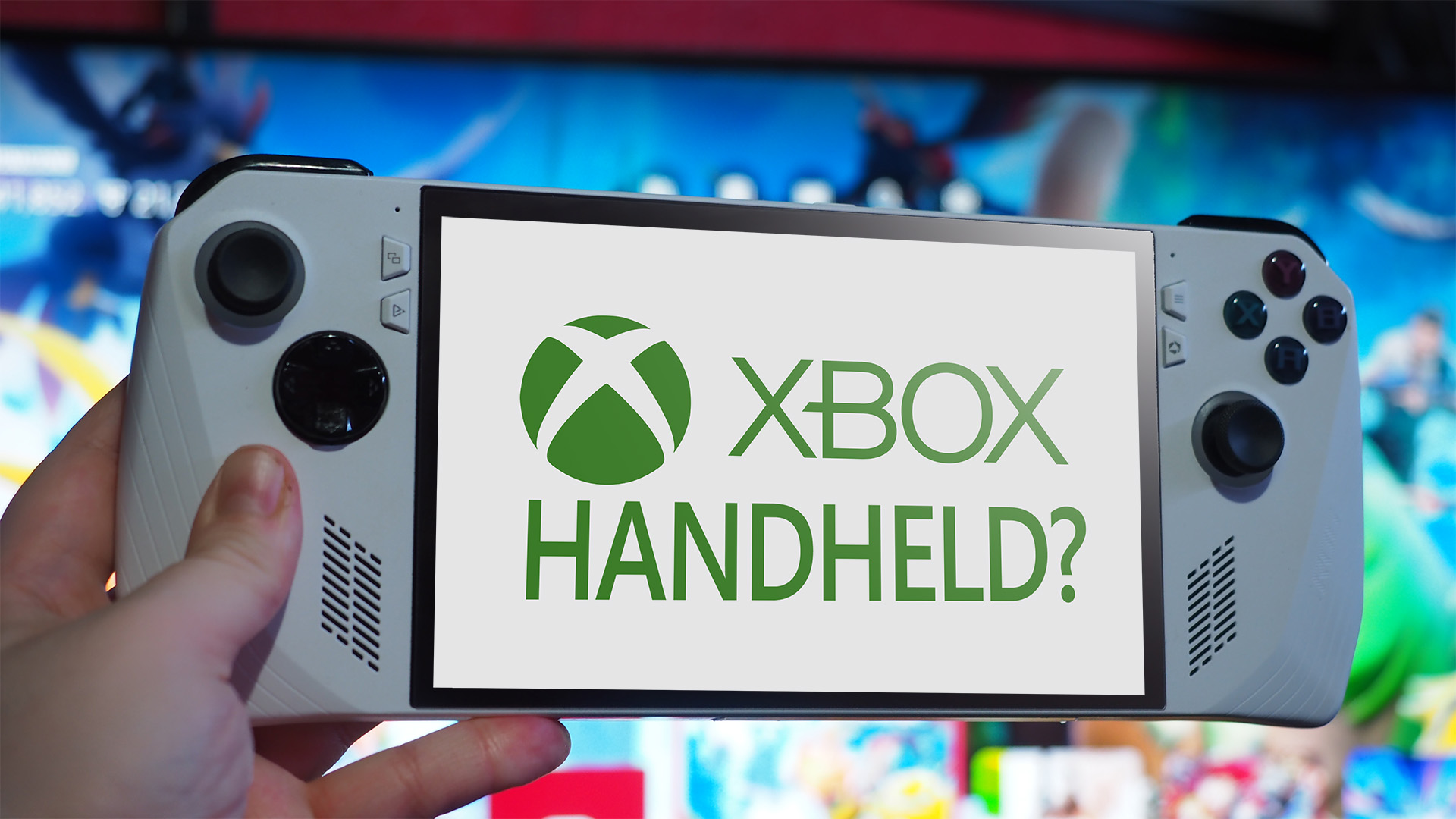
If you're inside the gaming social media bubble, you'll probably be aware of non-stop discourse over Xbox's hardware sales.
And yes, it isn't selling as fast as the Xbox One did, but people often overlook the fact that, far more so than ever, games are cross-gen compatible. Fortnite, Minecraft, FIFA, Call of Duty — the vast majority of the world's biggest games are launching across both Gen 9 and Gen 8, including Xbox One S and the original PlayStation 4.
The discourse revolves around comparisons to Sony's PS5 sales specifically, which are growing incredibly rapidly when compared to Xbox Series X and Xbox Series S. But the overall global market share of consoles isn't going up at the same rate by a long shot, and neither Xbox's or Nintendo's console market share isn't decreasing in any meaningful way overall either. In SEC filings which have to be accurate for legal reasons, Microsoft describes its console engagement as being higher than ever, although they decline to give exact figures.
So, giving Microsoft the benefit of the doubt for the sake of argument, people are either buying multiple consoles for different ecosystems as companion devices, or the big two are simply servicing their established, digitally-locked in consumer base. Sony is undoubtedly doing a better job of moving PS4 users to PS5, with a stronger line-up of nostalgic, well-known franchises. I would argue that Xbox owners are probably considering PlayStation consoles as well at least for companion devices more so than the inverse — owing to single-player exclusives like Final Fantasy 7 Rebirth (which looks fantastic). But Microsoft is still in the game, with more users than ever across its ecosystem — of which Xbox One and Xbox Series X|S remains the largest chunk. Microsoft also just landed Palworld, the world's hottest game right now, as a timed console exclusive. It's hard to imagine that this isn't at least having some impact on console sales right now.
Either way, what about the future? If the overall console market share of the gaming industry isn't growing, and Xbox users are mostly happy where they are, be it Xbox One or Xbox Series X|S, where will Xbox's next big market come from? Xbox Cloud Gaming, Xbox Game Pass and PC gaming are undoubtedly have a role to play, but more than ever, I believe a new hardware category absolutely has to be in the mix as well.
Finding the next big Xbox audience
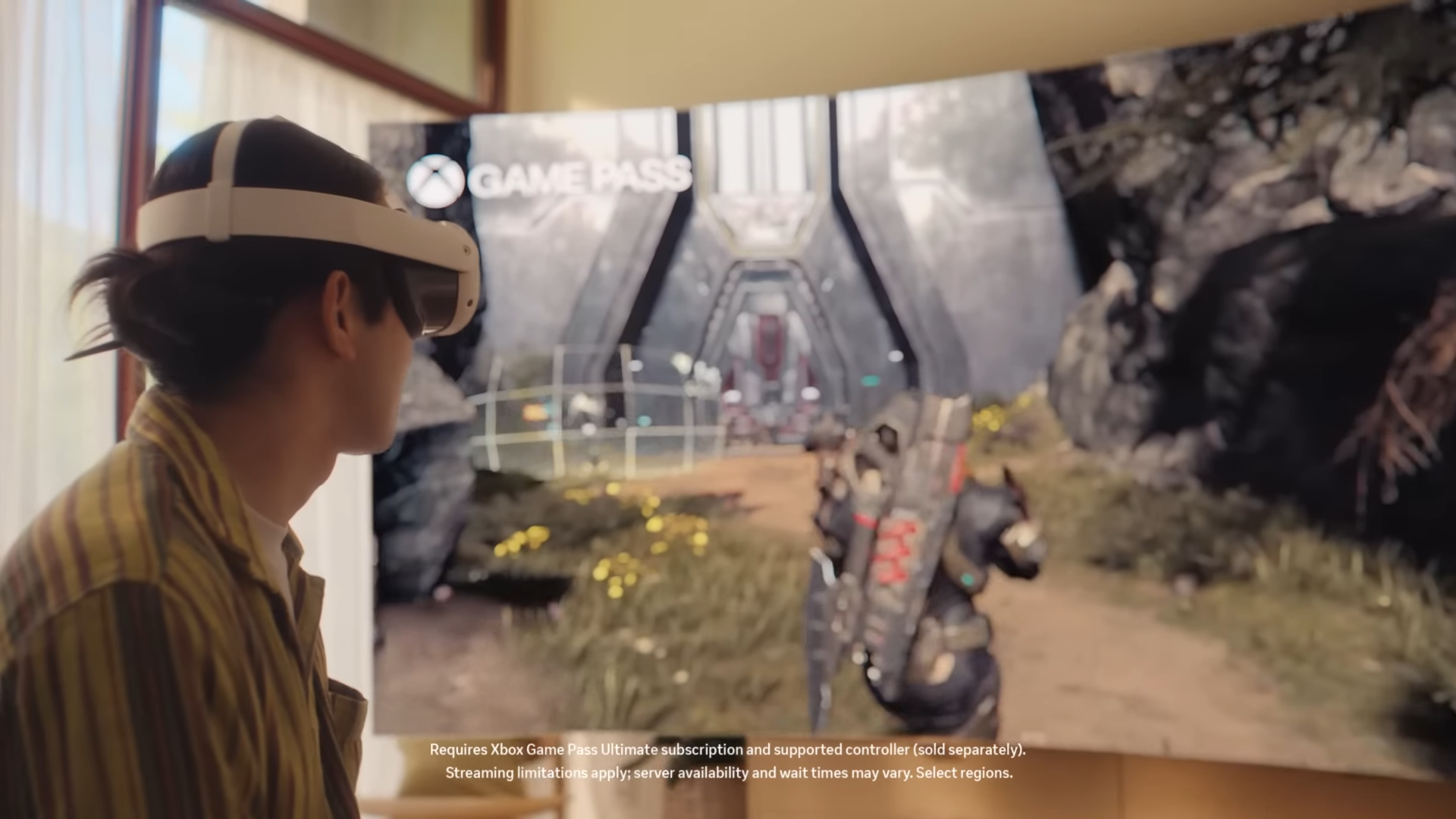
Microsoft has a huge regulator-sized problem with regard to its wider ambitions. Yes, Xbox has acquired Activision-Blizzard, which ended up costing more than $75 billion dollars (and 1900 layoffs ...), and with that comes a large PC and mobile gaming presence. But Xbox console hardware, and the Xbox console ecosystem remains the core of the Microsoft Gaming umbrella. You can't sell Xbox Game Pass subscriptions, Fortnite microtransactions, or copies of Gears of War 6 without platforms upon which to do that. And as I've outlined in previous articles, outside of Xbox console hardware, Microsoft has huge barriers and massive competition to overcome towards reaching those customers.
On PC, Microsoft has to compete with Steam. The fact that many millions of players would rather buy games like Starfield and Palworld outright at full price on Steam, rather than play it on PC Game Pass for a monthly fee, showcases just how strongly attached people feel to their existing purchasing habits. Accessing iOS or Android gamers is also an uphill battle, since Apple and Google makes doing business on iPad and iPhone as difficult as possible for competing corporations. Microsoft is betting that regulators will force Apple to allow it to put a Steam-like mobile game store onto iPad and iPhones, and I can't help but feel like that's naïve — but I'm also admittedly not the most optimistic person in the universe. Xbox Cloud Gaming is also insanely expensive to run. And even with Google allowing its existence on Google Play, all in-app purchases are blocked by policy, creating a huge barrier to profitability and scalability. NVIDIA GeForce Now also offers a better experience, and more and more people are starting to realize that as the cloud gaming market grows.
It's only really within Xbox console hardware that Microsoft can offer a complete experience right now. But let's disregard my pessimism for Microsoft's activities on competing platforms. Even if Microsoft is the most optimistic company on Earth, betting on Apple and Google welcoming Xbox Game Pass and in-game purchases with open arms — covering all their bases with a diverse array of Game Pass endpoints would be a far smarter business bet. There is one hardware paradigm that will overcome all of these potential hurdles, while also helping Xbox find a totally new audience.
New battles to control your eyeballs
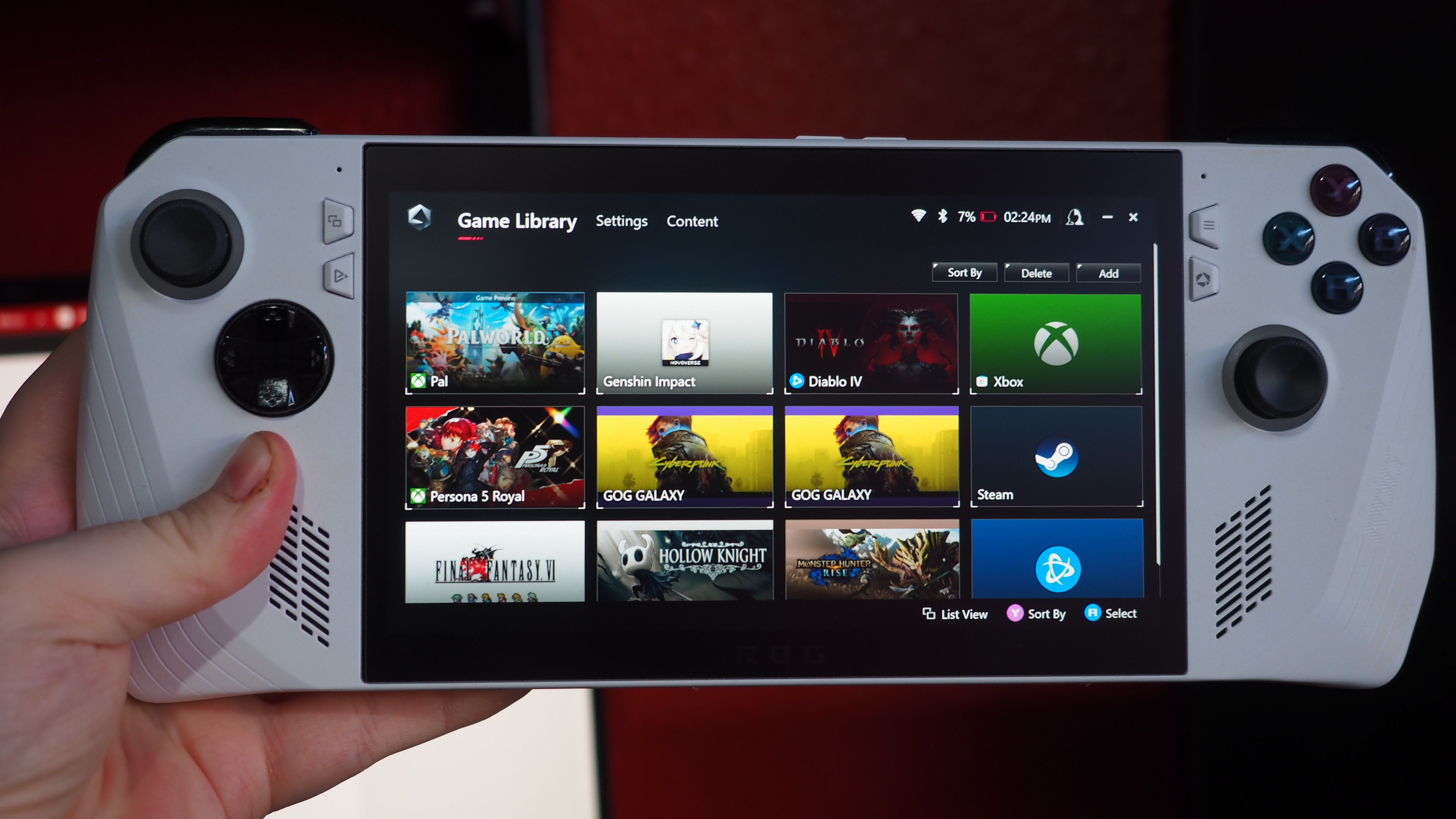
While we're probably still a few years away from the general availability of Elon Musk's primate-slaughtering Neuralink brain implants, companies are still trying to figure out ways of interrupting your gaze with products and sales. Apple's Vision Pro and Meta's Quest are hoping they can get you to put down your potentially-competing device, TV, or laptop, and co-opt your entire field of view, volunteering your perception of reality in favor of a curated one — offered by them and their advertisers. Meta is wholly constrained by Apple and Google's app store rules. So, Meta wants you to put down your phone and use their headsets instead, where it can do whatever it wants. Right now, Microsoft (and PlayStation for that matter) have a similar barrier to further growth. Struggling through Apple or Google's prohibitive rules about who can succeed on their platforms is a huge hindrance to finding new audiences for premium games like those served by Xbox and PlayStation.
PlayStation and Xbox both know this, with decreased operating margins faced with ballooning costs, and a flat overall global console market share. Let's presume that PlayStation does succeed in completely killing Xbox, where would they go from there? Capitalism "demands" perpetual growth, so at that point, simultaneous PC launches and multiplats become ever more likely, the further out we go. But what if there was another way to find new users?
Rumors began to swirl this week that PlayStation is exploring a native gaming handheld, with the power to run PS4 games. We've certainly seen chips that are approaching these kinds of capabilities. My ASUS ROG Ally can reliably run most PlayStation PC games without issue, from God of War to Horizon Zero Dawn, albeit with some compromises and caveats. It's not quite a PS4, but it's thoroughly playable, and thoroughly portable too. With the ASUS ROG Ally and Steam, PlayStation has turned me into a customer. Now what if PlayStation could preclude Steam (and its cut) from the process entirely? What if I'm someone who doesn't have room in my life for a PS5, but very assuredly does have room in my life for a dedicated, native, non-cloud PS4 handheld? These are questions both Sony and Microsoft are asking themselves right now, in a world where finding new audiences is absolutely critical.
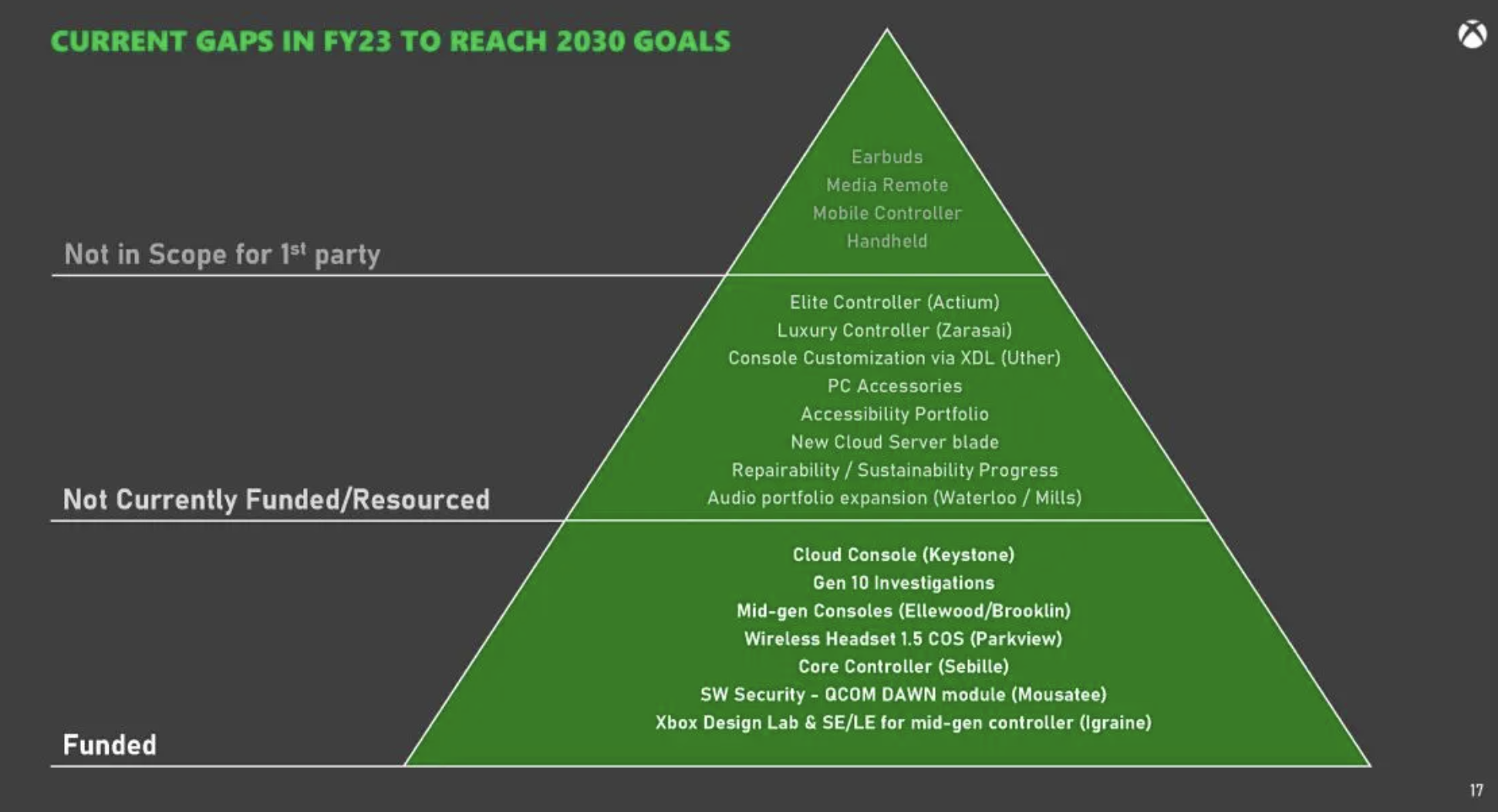
I know from talking to sources familiar with Microsoft's plans that an Xbox handheld has been discussed and considered for some time. But you don't need to take my word for it. Leaked documents emerging from the FTC trial over Activision last summer confirm that Microsoft was exploring an Xbox handheld, but back in 2020, described it as "out of scope for first party." Microsoft is working with third-parties on handhelds, with devices like the ASUS ROG Ally and Lenovo Legion Go. But, one of the biggest drawbacks of the ASUS ROG Ally and similar PC gaming handhelds is the Windows OS, which isn't designed for touch, small screens, or frankly gaming itself in some cases. Many users don't want to deal with the complexity of Windows in general, which is why Steam is finding new audiences with its simple-interface Steam Deck, which plays all your favorite Windows games without the bullshit of Windows itself.
It really is the Steam Deck that has changed the game here. You now have Steam effectively selling PlayStation and Xbox's games to a totally new, handheld audience, while also taking a cut for the privilege. Steam is essentially using Microsoft and PlayStation's own games as a vessel to grow its console platform. And while yes, you can boot up Linux and use the Steam Deck as a "PC," the vast majority of users are using it as you might a Nintendo Switch. A gaming-focused, handheld gaming console with none of the annoyances that come with PC gaming.
For Sony and Microsoft both, they'd have to be insane to not at least be considering how they can get in on this action. Both companies have industry-leading hardware teams, and both have been incredibly late to this incredibly exciting handheld party. And for what it's worth, I have reason to believe now, more than ever, that an Xbox handheld is within Xbox's future.
Beyond gaming, an Xbox handheld could become a necessity for cloud, A.I., and general computing
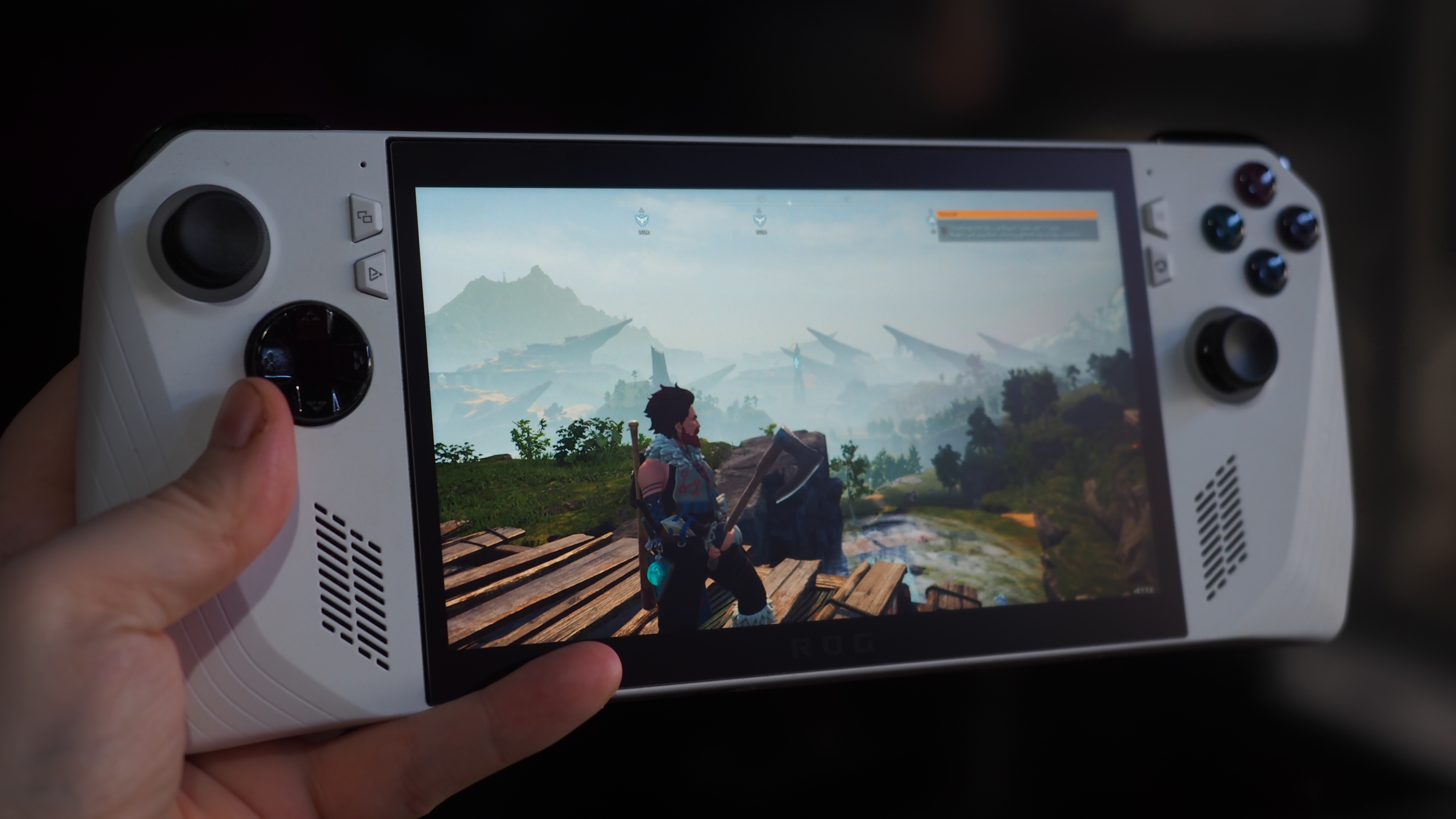
Microsoft CEO Satya Nadella lamented a short while ago that killing Windows Phone was a mistake, but why? During regulatory hearings, he also described how Apple and Google control the "default" apps on their platforms, while also weaving prohibitive rules to prevent other businesses from succeeding on the platforms, limiting innovation and consumer choice. Of course, he wants to make money, but he's also not wrong. In a universe where Windows Phone still existed in any meaningful way, Microsoft may face fewer barriers for its gaming, cloud, and A.I. ambitions on mobile platforms.
Cloud gaming would be far more viable tech if Apple and Google allowed them to exist and monetize freely on their platforms, giving developers access to millions, maybe even billions more consumers to further innovate and develop content. You know, like Windows does, and has, for the past several decades. Steam couldn't exist if Windows was closed like iOS is, and potentially neither would Google itself. And Microsoft itself lost an anti-trust case in the early 00s that, you guessed it, revolved around Microsoft making it difficult for users to switch to Google and Chrome on Windows.
So while Microsoft's arguments aren't necessarily altruistic, they're also true. The fact that Google and Apple control the default apps on their platforms will also harm Microsoft's and other's ambitions, from the smallest companies to the biggest corporations. They also hurt Microsoft's A.I. ambitions, their cloud ambitions, they also hurt Microsoft's Office and business ambitions. And of course, they hurt Microsoft's gaming ambitions. There's a limited version of Xbox Game Pass on Google Play, and Apple blocks Xbox Game Pass entirely on iPad and iOS, pending some changes forced through by UK regulators recently. And even then, Apple is known for its malicious compliance of regulatory decisions, abusing gaps in the legalese to work out ways to avoid full-blown capitulation.
We believe constructive conversations drive change and progress towards open platforms and greater competition. Apple's new policy is a step in the wrong direction. We hope they listen to feedback on their proposed plan and work towards a more inclusive future for all. https://t.co/mDRI5KPJf6January 29, 2024
Microsoft and PlayStation could spend billions to circumvent these natural barriers to new gamers. Or, they could spend far less money developing handheld hardware endpoints that they can fully control. Nintendo Switch, Steam Deck, and others have more than proven the concept. Handhelds can be stronger as companion devices, owing to their smaller footprint. They are also portable, allowing users to play away from their TV. They are also native, being less costly to run, and can be used in places with no internet reception. It just makes sense, no matter how you look at it. Microsoft and Sony could also bake their entertainment services into the devices, with Microsoft Movies & TV and Sony's Crunchyroll platforms, without having to give a cut to Apple and so on. They could open up their platforms to app developers for things like Netflix, and they would also be a mobile endpoint they could control for integrating users on future A.I. products. Hell, put Microsoft Office on it so I can write articles on the train ... you could also add telephony so I could make calls on it like Windows Phone ... okay maybe that's too far.
Jokes, rumors, and leaks aside — for me, cold hard logic dictates that handheld gaming is absolutely in PlayStation and Xbox's future. And I'm here for it.







